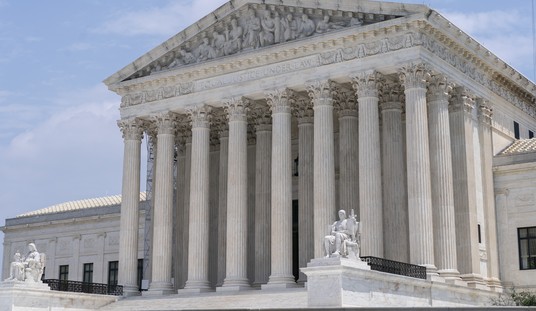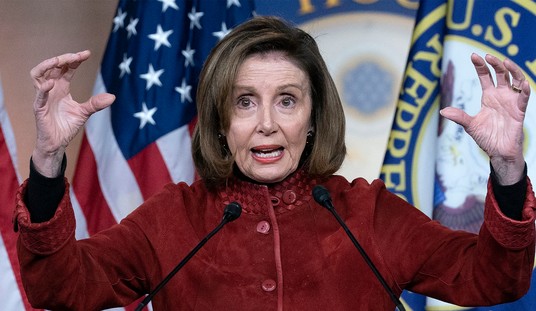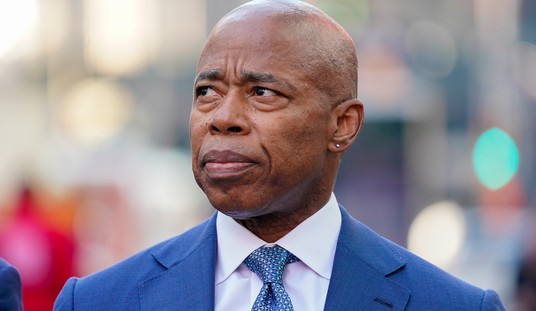As Jay Caruso noted earlier today, the Carrier deal touted by Donald Trump is based in part on a corporate tax break offered by Indiana (Mike Pence’s state, remember?). And Jim Jamitis will have more soon about the fact that Carrier’s parent company, United Technologies, has far more to lose from its deals with the federal government. I’d like to talk here, not about the newsy part of this, but why the economics is bad.
After all, it seems reasonable to say, as a correspondent told me on Twitter: why complain about crony capitalism, which seems like an abstract notion, when 1000 more families are going to have a Christmas where the breadwinner has a job?
It’s a fair question. And convincing you that it’s a problem is not something I’m likely to succeed in doing in one blog post. If you’re a fan of the deal, I’m not looking to change your mind in a few paragraphs. All I want to do is make you wonder whether maybe — just maybe! — there is another side.
First of all, let’s look at basic fairness. Carrier has competitors, right? And they’re not all foreign. I counted 14 air conditioning manufacturers or suppliers in Indiana in this list, and only one of them is Carrier. Are all of these companies going to get the same tax breaks? If not, what would you tell the employees of the competing companies, who maybe have their salaries cut or employees get laid off because they are now having a tougher time competing against another company that got a tax break so Donald Trump could get a headline?
And if all the Indiana air conditioning manufacturers get tax breaks, what then? Well, imagine you’re a consumer who has a few thousand dollars to spend on home repair. Your air conditioning system is getting older, but so is your roof. But hey! it looks like the air conditioning manufacturers, who all got tax breaks, are offering better deals these days on new A/C systems. Meanwhile roofers, who don’t get tax breaks, are offering nothing. You, and hundreds of other homeowners like you, decide to purchase new A/C systems rather than spend your money elsewhere.
So if A/C manufacturers get tax breaks, but other businesses don’t, this too hurts other businesses and their employees.
The bottom line is this: When government picks winners, it is also picking losers. But if you see only the winners, you may conclude that there is no problem.
The thing is, government intervention is usually popular. It’s also usually counterproductive. But the counterproductive parts are harder to see until the government intervention becomes widespread. Then, when the stores go empty, and the lines for supplies get long, you can finally see it — but then it’s too late. A lot of people in Russia loved Communism, which is just government intervention to the nth degree — until millions starved. The folks in Venezuela loved them some government intervention. Ask them how they like it now.
I’m not saying one tax break is Communism, of course. It’s just an example of government interference in the economy on a small scale, while Communism is an example of government interference on a huge scale. But the unintended consequences of government interference are not abstract. They are very real. Just ask Carrier’s competitors, who didn’t get a tax break because they haven’t threatened to move anything to Mexico.
Yet.
But they will, if they’re smart. That’s the other thing about intervention. One act of intervention encourages more. Welfare encourages people to seek benefits from government rather than by earning money through providing value to society. Corporate welfare does the same.
What I have done is an exercise in looking at the seen and unseen — a concept I have written about before. Government policy is often popular because there are obvious good effects that can be seen. But there are other effects that are unseen, and they exist too.
P.S. If you’re interested in discussions about free markets, liberty, and the Constitution, please join my group the Constitutional Vanguard here.
I’m not sure if you heard, but Donald Trump tweeted out something about burning the flag recently. It’s true. He did:
Nobody should be allowed to burn the American flag – if they do, there must be consequences – perhaps loss of citizenship or year in jail!
— Donald J. Trump (@realDonaldTrump) November 29, 2016
Oh and also he brought it up again tonight, in one of his victory lap rallies, because that’s good demagoguery.
Do you agree with my stance? That, if people burn the American flag, there should be consequence, right?
The only thing is . . . does he really believe it?
The Washington Post reports today that Trump had a different opinion in 2015 while on David Letterman’s show.
LETTERMAN: Here’s the example that I’m always proud of as an American. People, to demonstrate, they think, we’re really gonna stick it to the United States. ‘We’re going to set fire to the flag.
TRUMP: Yeah, right.
LETTERMAN: And people get — “Oh my God!” Well, no. If that’s how you feel, go ahead and burn the flag.
TRUMP: Yeah.
LETTERMAN: Because this country is far greater than that symbol, and that symbol is standing for freedom of expression.
TRUMP: Sure. It’s true. It’s happened. It’s true. You’re 100 percent right. Hey, he’s really into it tonight! I’ll tell you what. No, but I understand where you’re coming from, and it’s terrific.
I think Donald Trump should be stripped of his citizenship for agreeing with David Letterman. If you don’t agree, then you don’t love America like I do.













Join the conversation as a VIP Member